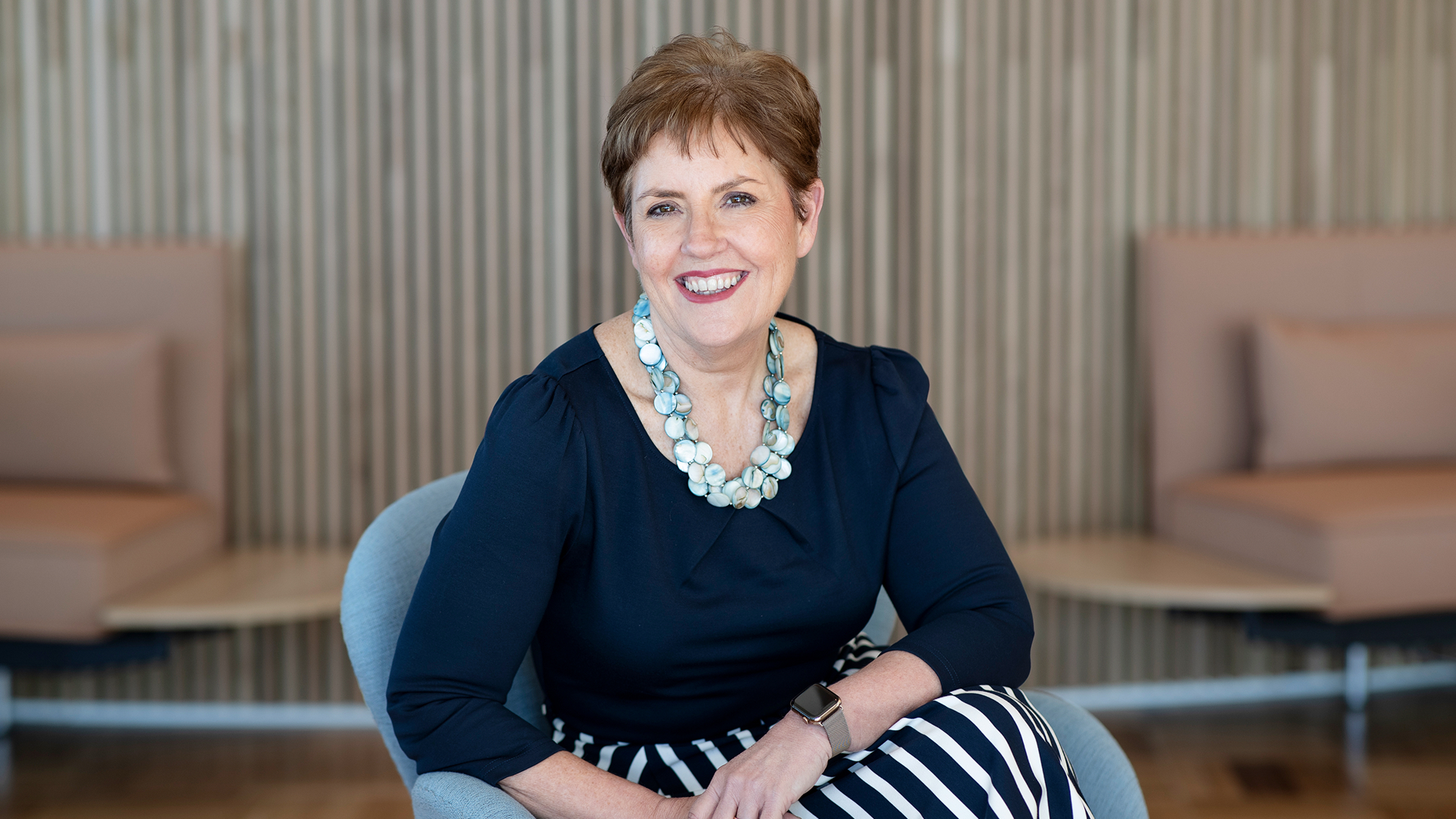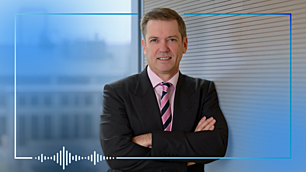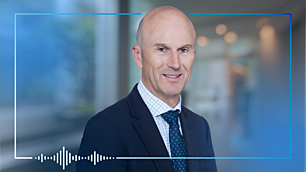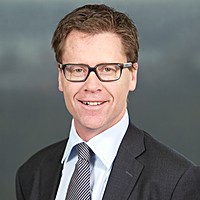Alexis George: Rebuilding AMP

By the time Alexis George took over as CEO of AMP in August 2021, the once-great financial institution was in deep trouble. The share price had collapsed 95% since its listing in 1998, its reputation was battered by scandals, and its staff were struggling with a lack of pride in the brand. Many thought AMP was beyond saving.
Fast forward four years and the story looks very different. The stock is up 60%, the company has returned more than $1 billion of capital, and employee sentiment is improving. While AMP still has plenty of work to do, Alexis George has stabilised the business and restored credibility.
Her journey to the top job is just as compelling. Raised in the country town of Bega, George took the practical path into accounting, then built an international career spanning London, Prague, and Hong Kong. She returned to Australia to become deputy CEO at ANZ, navigating the turmoil of the Banking Royal Commission. That experience only sharpened her desire to lead a company in her own right.
In this episode of Success and More Interesting Stuff, Alexis opens up about her early years, lessons from working abroad, and the risks she has taken along the way. Most importantly, she shares the story of AMP’s turnaround and her vision for the future.
Click on the player to listen or read a summary below.
This summary was prepared by a Livewire editor with the assistance of AI.
Small-town beginnings
Alexis George grew up in Bega, a country town better known for cheese than for producing CEOs. Surrounded by a large extended family, she learned early lessons in humility and resilience. Her father, a bricklayer who came to Australia as a “10-pound Pom,” instilled the value of hard work. Her mother, who missed out on higher education herself, made it clear that Alexis would go to university – even before she understood what university was.
“I can’t remember a time when she did not say to me, ‘You will go to university,’” George recalled.
Though she earned marks high enough to study medicine, financial realities led her to accounting. It was a practical choice: study part-time, work full-time, and support herself. The move from Bega to Sydney was a culture shock, but it opened her eyes to a bigger world. “It was hard,” she admitted. “But it was a great experience for me.”
Building an international career
George began her career in audit at Deloitte, then shifted to Price Waterhouse Coopers, winning scholarships and prizes along the way. A six-month transfer to London turned into three years, sparking her love of international work. But when she was placed on the partnership track, she surprised her peers by walking away.
“I didn’t want to just give advice and walk away,” she explained. “I wanted to actually implement something, develop it, and see if it failed or succeeded.”
That decision set the tone for her career – a willingness to take risks and back herself. After travelling through South America, she returned to Australia during a recession with no job and no money. A start in reconciliations at BT proved formative. “It turned out to be one of the best things I’ve ever done with my career,” she said. Nearly a decade there gave her exposure across operations, technology, and product development, including helping to establish BT’s now-famous wrap platform.
From there, George’s career went global. At ING she was tapped for senior roles in Prague and later Hong Kong. Living and leading in non-English speaking environments tested her adaptability. “I thought I could just be who I am and that would be okay. Well, sometimes it’s not,” she reflected. “Your core doesn’t change, but your behaviour needs to adjust.”
The desire to lead
By the time she returned to Australia, George had built a reputation as a seasoned operator across wealth, insurance, and banking. She joined ANZ and rose to deputy CEO, working alongside Shayne Elliott during the toughest period in recent banking history – the Royal Commission.
“It was the hardest year of my life,” she admitted. “When people started feeling embarrassed at barbecues about where they worked, that’s not a great thing.”
Yet the experience sharpened her belief in the importance of financial institutions to society – helping people save for retirement, funding businesses, and underpinning economic growth. At ANZ she saw the full scope of what it meant to be a CEO of a major bank without having the final responsibility herself. That exposure only strengthened her desire to lead an organisation outright.
“I like running businesses,” she said. “I like working on strategies, I like building teams to execute and have success.”
Rebuilding AMP
When the call came from AMP in 2021, George was not actively looking. The 176-year-old brand had been battered by scandal, cultural failings, and strategic missteps. Its share price had collapsed 95% since listing in 1998, and it had become, in her words, “front page for all the wrong reasons.”
She weighed the risks but ultimately leaned in. “I probably run to fires, not away from them,” she said. “I don’t want to see this brand destroyed. Let’s have a go at reinvigorating it.”
The first year was consumed by urgent tasks: stabilising the balance sheet, dealing with failed asset sales, and resetting the business strategy. But she knew reputation and culture were just as important. “People weren’t proud to work at AMP,” she said. “We had to reinstate that pride.”
Building a leadership team was a challenge – convincing outsiders to join was no easy sell – but gradually the pieces came together. She leaned on trusted external advisors, drew on her deep network, and worked to bring consistency in communication with staff, investors, and the board.
“You’ve got to keep talking the same talk, be boringly consistent, and just deliver,” she explained.
Four years later, AMP is a leaner, more focused business. It has delivered $1.1 billion in capital returns, the share price has climbed 60% under her leadership, and customer sentiment is improving. “Our reputation is the highest it’s been in seven years,” George said. “People are proud to work here again.”
Her focus now is firmly on growth. AMP’s positioning in retirement savings and superannuation gives it a structural tailwind as Australia’s population ages. “We’re in a unique position,” she said. “We want to be the place where people can come to have a dignified retirement, where they can ask their stupid questions, where they’ll get the right solutions without having to make decisions every year of their life.”
Innovation is central to this vision. George points to AMP’s use of social media, its embrace of AI, and the launch of a new digital bank.
“We don’t have the money to sponsor stadiums,” she said. “But we can move faster, we can innovate, and we can think like a challenger.”
Managing the volatility of public markets comes with the territory. George is pragmatic. “It’s a daily scorecard whether you like it or not,” she said. “Of course, it’s nicer when the share price is rising, but I can’t be distracted by daily volatility. We’ve got to stay the course, deliver on the strategy, and build credibility over time.”
For George, leading AMP is both a challenge and a privilege. “When I go up those escalators in the AMP-named building every day, I feel a great sense of responsibility, but also privilege,” she said.
After decades abroad, stints in banking and wealth, and years of rebuilding institutions through turmoil, Alexis George has found her moment – reshaping one of Australia’s most recognisable financial brands for the future.
More episodes



1 stock mentioned


